Speak French like the locals do!

Are you brushing up on some French before you come to Paris? Or, maybe you’re just interested in learning a second language! Whatever your reasons, welcome to the wonderful world of français.
French is definitely not one of the easiest languages to learn, but it is very rewarding once you get the hang of it. I say this from experience! I’ve lived in France for about 6 years now, but I haven’t always been a French-speaker. In fact, it took me about 3 years to really get a hang of it.
In all honesty, I didn’t really try to speak French those first 3 years. I had found a community of expats in the city that all spoke English, and I was working as a nanny. The main reason that the family I was working for hired me was to speak English with the kids, so I wasn’t learning a lot of french from my “host family” either.
Fast forward to my 3rd year here and I decided that it was time for me to learn the language, once and for all. If I wanted to stay here permanently, it was the natural next step. So, I enrolled in an intensive French program that was 25 hours a week of French classes. I learned a lot! I could finally communicate with people! And that meant I had learned how to say a little bit more than bonjour and merci.
While I loved the courses that I took, there are definitely a lot of words and phrases that I learned on my own with my French friends. Spoiler alert: no one says comme ci, comme ça anymore, and if you use the formal vous form with everyone you meet, you may get some weird looks.
If you want to learn how to speak French like the locals do, you’ve come to the right place! I’m sharing 10 phrases they should have taught you in French class!
1. Ça va? Oui, ça va. Ça va?
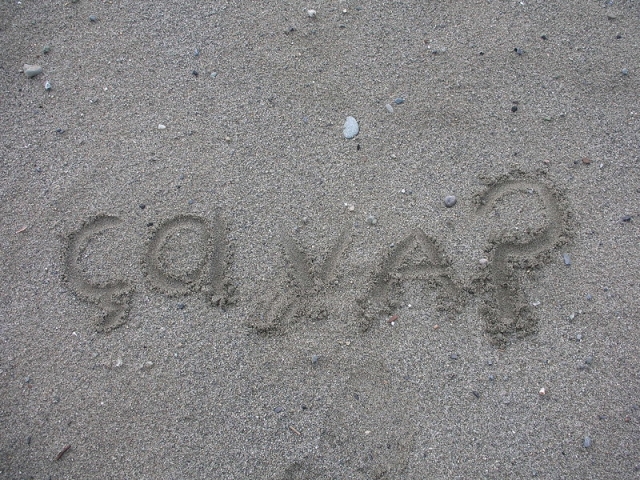
If you’ve been to France before, I’m sure that you’ve heard the words ça va being thrown around left and right. Ça va literally translates to it’s going, but this phrase is used for so much more.
Rather than saying the mouthful, comment allez-vous? to ask how are you, shorten it up to a simple ça va? You can also respond to this question in the same way. That’s why you’ll hear a lot of conversations that go a little something like this:
- Salut ! Ça va ?
- Oui ça va! Ça va ?
- Oui ça va, merci !
You can also respond to different questions with ça va. It can also mean it’s okay. Are you cold? Ça va. Do you like your meal? Ça va. Do you want to go on a date with me? Uh, ça va, non…you get the idea!
2. Je vous en prie
This is a phrase that I truly never learned in French class, which is pretty surprising! You may already know that you can say you’re welcome by saying de rien. De rien literally translates to it’s nothing, and I’m not sure about all of you, but I rarely say it’s nothing…I prefer to say you’re welcome!
Well, the closest way to say you’re welcome in French is je vous en prie, or, je t’en prie, if you’re using the tu form (more on the difference between tu and vous later on). Speaking from experience, I hear a lot more of this version of you’re welcome than de rien. I also just think it sounds prettier!
3. Parlez-vous anglais?
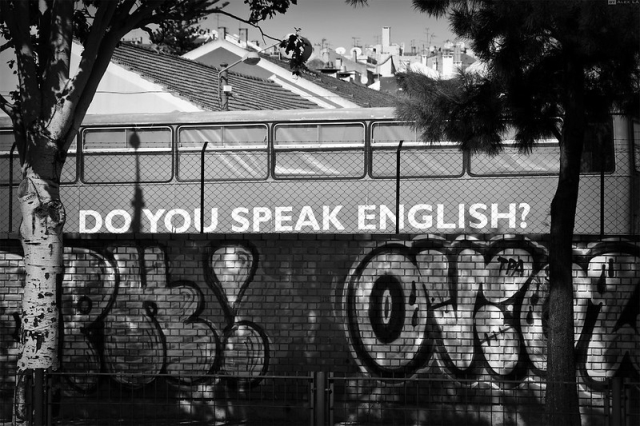
Okay, I know what you’re thinking. “Of course I’ve learned this phrase in French class!” And, well, I’m sure you have. But I added it to my list because I find that a lot of tourists seem to completely throw this phrase out the window once they arrive in France.
French people have this weird reputation for being rude. Parisians in particular are constantly targeted as being mean and impolite. I have a theory that this is only because foreign tourists constantly bombard servers, shop workers and hotel receptionists in their native language, not French.
Would you be nice if someone came up to you speaking a foreign language and expected you to understand right away? Would you get even more annoyed with said person got frustrated with you? I think we would all answer the same!
Now, let’s try this again. Once you arrive in France, and if you don’t feel comfortable speaking French, always, always, ALWAYS open up the conversation with parlez-vous anglais (or your native language). You’ll notice a huge difference, I promise!
4. Beurk, miam, ben, oh la la, euh, aïe!
All languages have unique sounds that we all make as humans. It seems so obvious to me now, but this was something that really shocked me once I started to learn French!
Here are some sounds you need to know:
- Beurk = yuck
- Miam = yum
- Euh = um
- Oh la la = yes, French people actually do say this! It translates roughly to oh dear!
- Aïe! = ouch!
5. Ça roule!
This is one of my favorite French phrases. Ça roule translates simply to that works! The formal version would be ça marche, but I just like the way ça roule sounds. Use this phrase and you’ll be able to impress any French speaker that comes your way.
Use this version if you really want to be cool: ça roule ma poule (that works, chick)!
6. Don’t mix up tu and vous
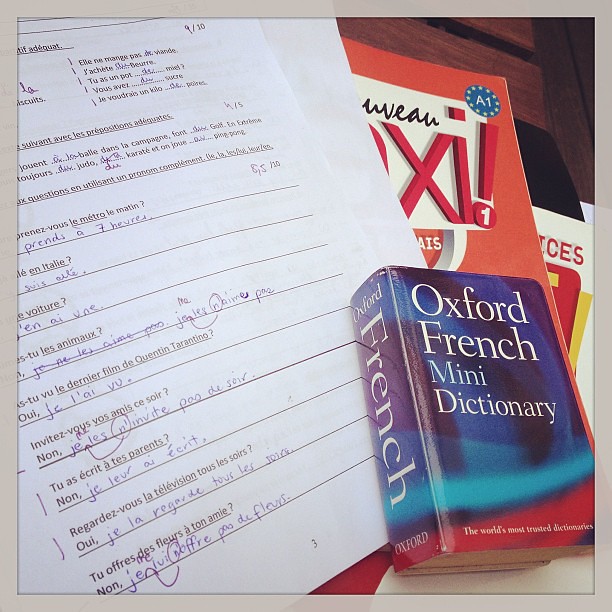
This subject is a little bit tricky, even for native French speakers! It’s really tough for English speakers, as we do not have different forms of you. In several other languages, there are two versions, and the reasons why differ.
In French, the rough rules go like this: vous is used as a sign of respect, so you should use it if you’re speaking with someone older than you, someone you don’t know (like a server in a restaurant, or someone working in a shop), or in a professional setting.
Tu is the more familiar version of you. You should use it with friends, family, people your own age or children.
Now, I say this is complicated because there are a lot of exceptions to these rules. I know some people that use vous with their grandparents as a sign of respect, and others that use tu because they are family. I’ve also heard people use tu with servers because they are the same age, or are older. There are some others that only use tu because they find vous outdated and stuffy. And don’t get me started on the complications that can arise in a work setting…oh la la!
As a tourist, I suggest you use vous. But, if you make some fast French friends while you’re here – go for the tu!
7. Mec and meuf
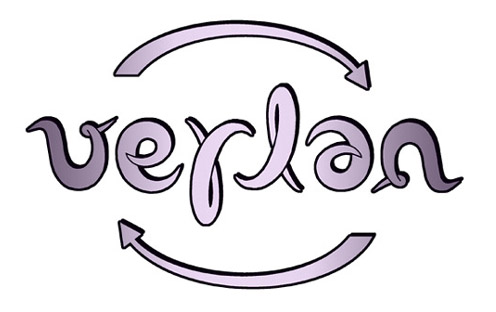
This is just a fun addition to my list, and an opportunity to explain a little something called verlan.
Verlan is a version of French slang, and basically the concept is this: switch around a few syllables and voila, you have a new word. Even the word verlan, is the, well, verlan version of the word l’envers, which means “reverse.”
A great example is cimer, which is the verlan version of merci. And what are mec and meuf, you may ask? Well, mec isn’t technically verlan, but it is slang for man. Think of it as the French version of dude. And meuf? That’s verlan for femme, which means woman. I proudly introduce…dudette!
8. You can shorten your words
I think that we do this in all languages, so it should come as no surprise that there are ways to shorten things up in French, too.
Here are some good examples:
- Comme d’habitude = comme dab (like usual)
- D’accord = d’acc (okay)
- Restaurant = resto (restaurant)
9. Don’t be afraid to add a little bit of Franglais
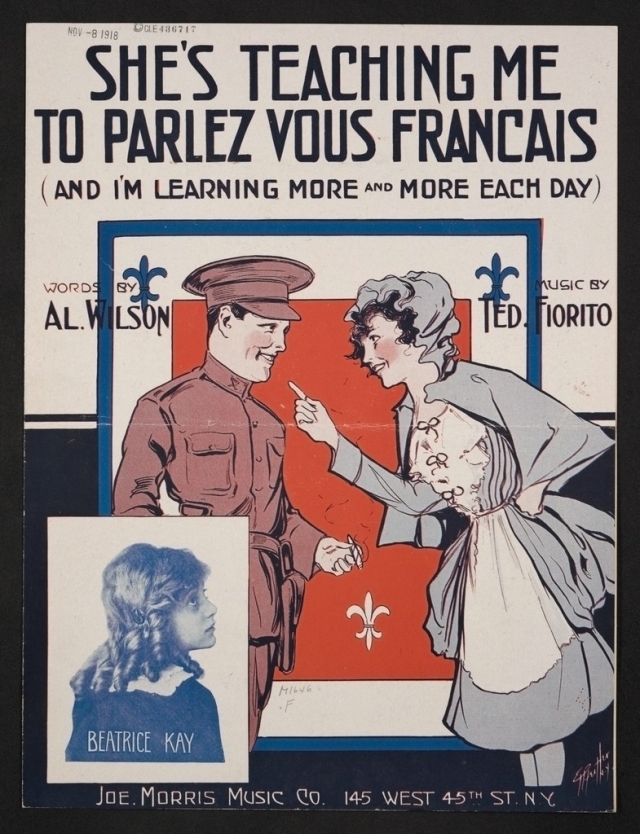
Although French people don’t love it when you bombard them in English, they do love to throw in some short phrases here and there! I find this so endearing. Here are a few that I’ve noticed people use quite often in Paris:
- Too much! (this one is pretty obvious)
- Bruncher (brunch as a verb)
- Liker (like as a French verb)
- Happy Hours (the ‘s’ is always added here, which I somewhat hate, but also love)
- Avoir un brainstorming (to have a brainstorming session)
A lot of traditional French people really don’t like this seemingly English invasion, but all of my close friends don’t think much of it, and just like the opportunity to add some more vocabulary to their language toolboxes 😉
10. J’ai la flemme
I’ve saved the best for last! Well, the best for all of my fellow procrastinators out there. J’ai la flemme roughly translates to I’m lazy. I’ve been curious about the origins of this phrase for a while, and this article was the perfect excuse for me to do a bit of research!
According to the website linternaute, which is a French dictionary website, j’ai la flemme has been in use for centuries:
“The origin of this expression dates back to the Middle Ages, when doctors believed that certain bodily fluids influence mood and behavior. And among these fluids was “phlegm”. A person with little phlegm was considered to be not very dynamic.”
Easy to remember, right? Phlegm, flemme…for some odd reason, I do associate phlegm with laziness!
Conclusion
Thanks for reading everyone! I hope you all have learned a little something about the French language that I’m sure you never learned about in French class.
Did I forget any of your favorites? Let me know in the comments below!

Thank you for a brief fresher course. I always had a little trouble in Colorado because our French teacher was Jewish (that lived in France and Italy after the war) with such a heavy accent of Italian it was hard to understand his English. Please post more.
Thanks for reading Gayle! We’re happy to have helped 🙂